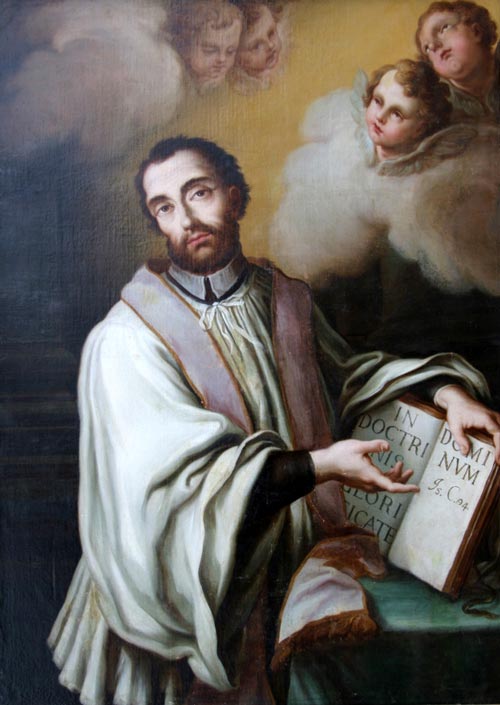The life of Caesar De Bus
The life of Caesar De Bus
 Caesar de Bus, the seventh of thirteen children, was born in Cavaillon near Avignon in France, on February 3, 1544, “it was a Sunday, at 9 in the morning”.
Caesar de Bus, the seventh of thirteen children, was born in Cavaillon near Avignon in France, on February 3, 1544, “it was a Sunday, at 9 in the morning”.
Raised in a “naturally” Christian family and social environment, he went through the turmoil of the adolescent crisis that marked his youth and led him to a life of cheerful company and easy amusements.
The strong call to abandon the path of sin and return to the practice of an authentic Christian faith passed through Antoinette Reveillade and Louis Guyot – humble people he met in the de Bus household – whom the Lord placed on his path: both implored God for the miracle of Caesar’s conversion.
One evening, before going out with friends, Caesar was troubled by reading some pages from a Life of Saints, which Antoniette had insistently suggested to him. He tried to hide his feelings, but once outside the house, he heard the voice of Christ saying to him: “Are you going to crucify me again?”. He immediately returned and spent the night in prayer with Antoinette. Months later, this time in Avignon, although increasingly attracted by the desire for full conversion, he accepted an invitation to a dance. Soon bored, he began to wander through the streets of the city during the night. Close to the wall of a convent, from which came the singing of the nuns, God waited for the young man to put a “healthy and holy restlessness” in his heart: “What a wretch I am! These nuns get up at night to praise God, while I, at night, go and offend him”. Grace began to work powerfully in him.
It was the Holy Year 1575. Caesar celebrated his jubilee and returned to the Lord under the guidance of the Jesuit Father Péquet; he changed his life, resumed his studies, interrupted in adolescence, and began his priesthood. Ordained a priest in 1582, he became a passionate catechist “of the truths that are the way to heaven” and offered them to his people as “broken bread”, with a simple, immediate, figurative style that was understandable by all.
In the silence of the hermitage of St. Jacques, located on the hill overlooking Cavaillon, he immersed himself in prolonged prayer and in the study of the catechism “for parish priests”, the fruit of the Council of Trent. From there he then reached the towns and cities of Provence, finally settling in Avignon.
Struck by the catechistic zeal of Saint Charles Borromeo, bishop of Milan, whose work he came to know indirectly, he ended up gathering a group of priests with whom he outlined a common lifestyle and shared the effort and joy of “practicing the Christian Doctrine”. Years of fruitful catechetical apostolate followed, but it was also accompanied by many physical and moral sufferings, including the abandonment of his first companions and progressive blindness, which would become total in the last years of his life.
In complete stripping, on the cross like Jesus, his existence ended on April 15, 1607, Easter Sunday, in the house of St. Jean le Vieux, in Avignon. He ended, but not forever; he ended for the record, not for the history of the Church, which advances under the guidance of the Spirit. Struck by the originality of his catechistic style, Paul VI proclaimed Father Caesar Blessed on 27 April of the Holy Year 1975, pointing him out to the Church as a model for catechists.
His constant commitment to bringing the Gospel into people’s lives is well summarized in one of his famous expressions: “everything in us must catechize, we must become a living catechism.”
